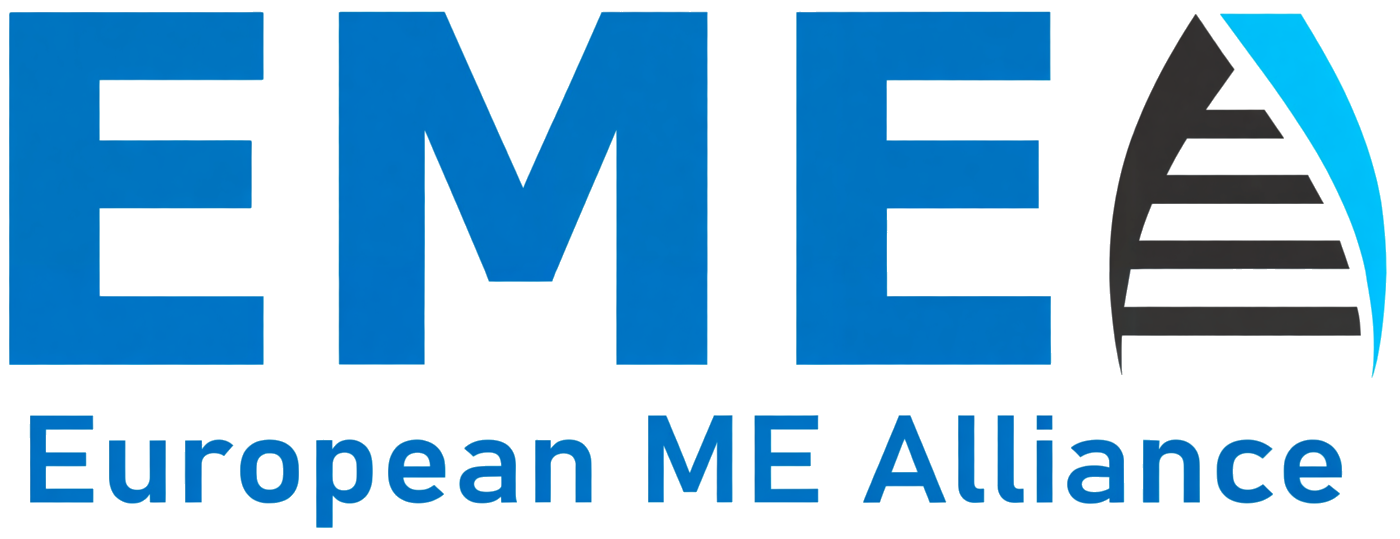May 2025
The European ME Alliance (EMEA) has been a consistent and vocal advocate for people with Myalgic Encephalomyelitis
(ME, sometimes referred to as ME/CFS* ),
striving to ensure that patient voices are heard and respected in the development of clinical guidelines.
EMEA’s involvement as a member of the Independent Advisory Group (IAG) for the Cochrane review of exercise therapies for ME/CFS was intended to bring patient experience and scientific integrity to the forefront.
However, EMEA’s experience has exposed significant shortcomings in Cochrane’s process, culminating in a strong critique of the organisation’s decision-making and its impact on both patient safety and, indeed, even on Cochrane’s own reputation.
EMEA’s Role and the IAG Process
The IAG was established to provide independent, expert, and patient-centred oversight of Cochrane’s review process for exercise interventions in ME/CFS. EMEA, alongside other patient organisations and experts, contributed detailed feedback—particularly highlighting the harms reported by patients from graded exercise therapy (GET) and similar interventions.
From the outset, EMEA emphasised the need for rigorous methodology, transparency, and, above all, for the voices of those most affected by ME/CFS to be central to the process.
Raising Concerns: Open Letters and Formal Submissions
By January 2025, it was apparent that significant concerns remained, and would remain unaddressed. The IAG, with strong support from EMEA, published an open letter to Cochrane outlining critical issues:
- Cochrane’s failure to address methodological flaws in the evidence base for exercise therapies
- Lack of meaningful patient and public involvement in the review process
- Insufficient attention to the harms and adverse effects reported by patients
These concerns were echoed in formal submissions and technical comments, which detailed the inadequacy of the evidence supporting exercise therapies for ME/CFS, the failure to account for post-exertional malaise (PEM)—a cardinal symptom of ME/CFS—and the lack of transparency around potential conflicts of interest in the evidence base.
Despite these efforts, Cochrane chose not to re-examine its guidelines.
EMEA considers this decision indefensible, as it risks perpetuating harm to people with ME/CFS and undermines the credibility of the review process.
It is another example of an establishment organisation getting it wrong regarding ME/CFS – and it is the patients who again will bear the consequences of poor decisions that are more likely guided by vested interests than by care for people affected by this disease.
Background: The Troubled History
Cochrane’s review of exercise therapy for ME/CFS has a long and contentious history. Since 2015, the review was revised multiple times in response to formal complaints and mounting criticism from patients, clinicians, and researchers regarding methodological flaws and the potential harm of its recommendations.
In 2019, Cochrane published an amended version, but it continued to rely on studies with significant limitations, including high risk of bias and inadequate reporting of harms. Despite acknowledging that the review was “substantially out of date and in need of updating,” Cochrane failed to conduct a full, independent reanalysis as promised.
Cochrane’s Recent Actions: A Critical Turning Point
In January 2025, Cochrane made the controversial decision to abandon the independent analysis of its 2019 review, citing insufficient new research and a lack of resources. More troublingly, Cochrane altered the publication date of the review to make it appear current, despite relying on sources more than a decade old. This move has been widely criticised as misleading, allowing the review to be cited as if it reflects the latest evidence, when in fact no substantive update has occurred.
The IAG, with EMEA’s backing, condemned this decision in an open letter, expressing “dismay and concern at the rejection of our formal advice” and highlighting the lack of consultation and transparency. The group noted that Cochrane’s actions falsely imply that a thorough reanalysis took place, when in reality, no such process occurred.
Implications of Cochrane’s Actions
The implications of Cochrane’s repeated revisions and eventual abandonment of its review are significant and multifaceted:
| Implication |
Description |
| Erosion of Trust |
Damages Cochrane’s reputation for impartial, rigorous evidence |
| Patient Harm |
Risks perpetuating outdated, potentially harmful clinical guidance |
| Quality Control Failure |
Raises doubts about Cochrane’s ability to ensure safe, accurate reviews |
| Politicisation and Inefficiency |
Reflects poorly on governance and editorial processes |
| Impact on Evidence Synthesis |
Adds to confusion and undermines the credibility of systematic reviews as a whole |
Cochrane’s handling of the ME/CFS exercise review has not only failed patients but also called into question the organisation’s processes and its role as a leader in evidence-based medicine.
EMEA’s Critique and Call for Reform
EMEA is critical of Cochrane’s refusal to review its guidelines for several reasons:
- Patient Harm: The guidelines continue to endorse interventions that many patients report as harmful.
- Outdated Evidence: The evidence base has evolved, and current guidelines do not reflect the latest scientific understanding or patient experience.
- Marginalisation of Patient Voices: The process has failed to incorporate meaningful patient and public involvement, contrary to best practice in health guideline development.
- Erosion of Trust: By disregarding the IAG’s expert and patient-led recommendations, trust in Cochrane reviews is deservedly undermined.
EMEA’s experience as part of the IAG demonstrates the urgent need for reform in how Cochrane, and similar bodies, assess evidence for ME/CFS.
Without genuine engagement with patient communities, rigorous attention to methodological quality, and a commitment to transparency, Cochrane risks not only failing people with ME/CFS but also devaluing its own reputation as a leader in evidence-based healthcare.
Summary
EMEA calls on Cochrane to restore trust by:
- Acknowledging the limitations and risks of its current review
- Committing to a transparent, independent reanalysis with meaningful patient involvement
- Ensuring that all future reviews prioritise both scientific rigour and patient safety
Only by addressing these failings can Cochrane hope to regain any sort of standing as a trusted source of medical evidence and fulfil its mission to improve health outcomes for all.
EMEA remains committed to advocating for people with ME/CFS and will continue to press for guidelines that truly reflect the needs and experiences of those living with this complex condition.
References
- Independent Advisory Group Open Letter to Cochrane (24 January 2025)
- IAG Submission to Cochrane (13 March 2025)
- IAG Technical Comment on the Cochrane Exercise Review (13 March 2025)
- Hilda Bastian, ‘When Journal, Scientific Society, and Community Values Clash’ (24 January 2025)
- RACGP Critical Review of the Cochrane Review on Exercise Therapy in ME/CFS
* ME/CFS is used for this article as some countries still do not refer to ME


